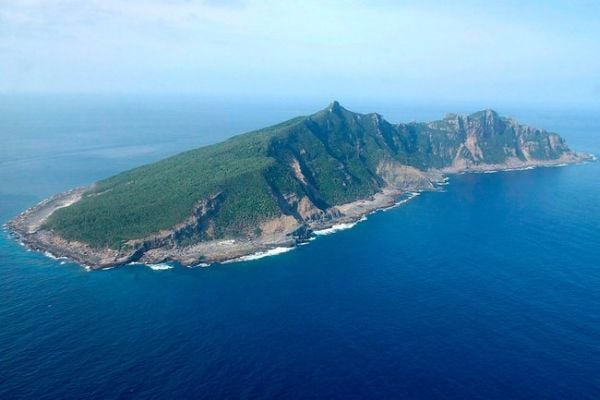
One of the Senkaku/Diaoyu Islands in the East China Sea. Photo: Hiroya Shimoji/European Pressphoto Agency
U.S President Barack Obama made no mention of the Asia-Pacific in his address to the UN General Assembly on September 25, rather the focus centered on the continuing turmoil within the Middle East, including serious concerns over Iran’s nuclear ambitions and the humanitarian crisis in Syria. U.S. foreign policy remains global, and it has to. With much talk about the U.S. pivot or rebalance towards the Asia-Pacific in terms of military assets and economic engagement, calls for U.S. engagement and leadership in other parts of the world are not going to wane.
All this comes at a time when events in Asia unfold at their own dynamic. A territorial dispute between Japan and China remained high on the agenda over what the Japanese call the Senkaku islands and the Chinese refer to as the Diaoyu islands—five uninhabited islands and three reefs that may be rich in oil and natural gas resources. This all came after the Japanese government purchased three islands in the East China Sea from a private Japanese citizen earlier this month in an attempt to cool tensions before the Mayor of Tokyo, Shintaro Ishihara, could purchase the islands. The result was widespread nationalism in both countries resulting in violent anti-Japanese riots across China. These riots did appear to be somewhat subdued last week, compared to a week earlier when many Japanese businesses in mainland China shut down, and Japanese cars and other products were vandalized or boycotted. Taiwan also claims the islands and a fleet of fishing vessels engaged Japanese Coastguard vessels last week in a running cat-and-mouse game.
All this was unfolding at a time when U.S. Defense Secretary Leon Panetta was on a visit to both countries, hot on the heels of Secretary of State Hillary Clinton’s visit to the region a few weeks earlier. In a speech in Beijing on September 19, Panetta, speaking about US-Sino ties, called for a closer “constructive, bilateral relationship with China” and he encouraged “leaders both in Japan and China to do are to sit down and to try to resolve these issues peacefully.” All parties are aware of the fact that the United States as a staunch treaty ally of Japan has stated that the islands in question do fall under the auspices of the US-Japan alliance.
Chinese Foreign Minister Yang Jiechi raised the issue at the UN General Assembly last week stating that “Japan’s recent private purchase of the islands ‘grossly violated’ China’s sovereignty and described the act as posing ‘a grave challenge to the post-war international order and the purposes and principles of the Charter of the United Nations.’” The Chinese state controlled news agency Xinhua reports that “The East China Sea Fleet of the PLA Navy has staged a live-fire drill, aimed at strengthening its striking potency against island targets.” Yukon Huang, from the Carnegie Endowment for International Peace has a very interesting piece on the potential economic impact of this dispute aptly entitled “The Economics behind the China-Japan Dispute.”
Looking ahead, this issue is not going to go away in the immediate future, and at a time of leadership transitions scheduled for China later this year, an election in the United States and possible elections in Japan. Clearly, this is a bilateral issue between Japan and China that should be solved in a peaceful and diplomatic manner, but tensions and passions are high. At some stage, all eyes may turn to the United States for some indication of the next move. One could ponder if the presence of two U.S. Navy aircraft carrier battle groups–the USS George Washington and the USS John C. Stennis–and the USS Bonhomme Richard with two escorts consisting of 2,200 U.S. Marines in the region is designed to do exactly that?